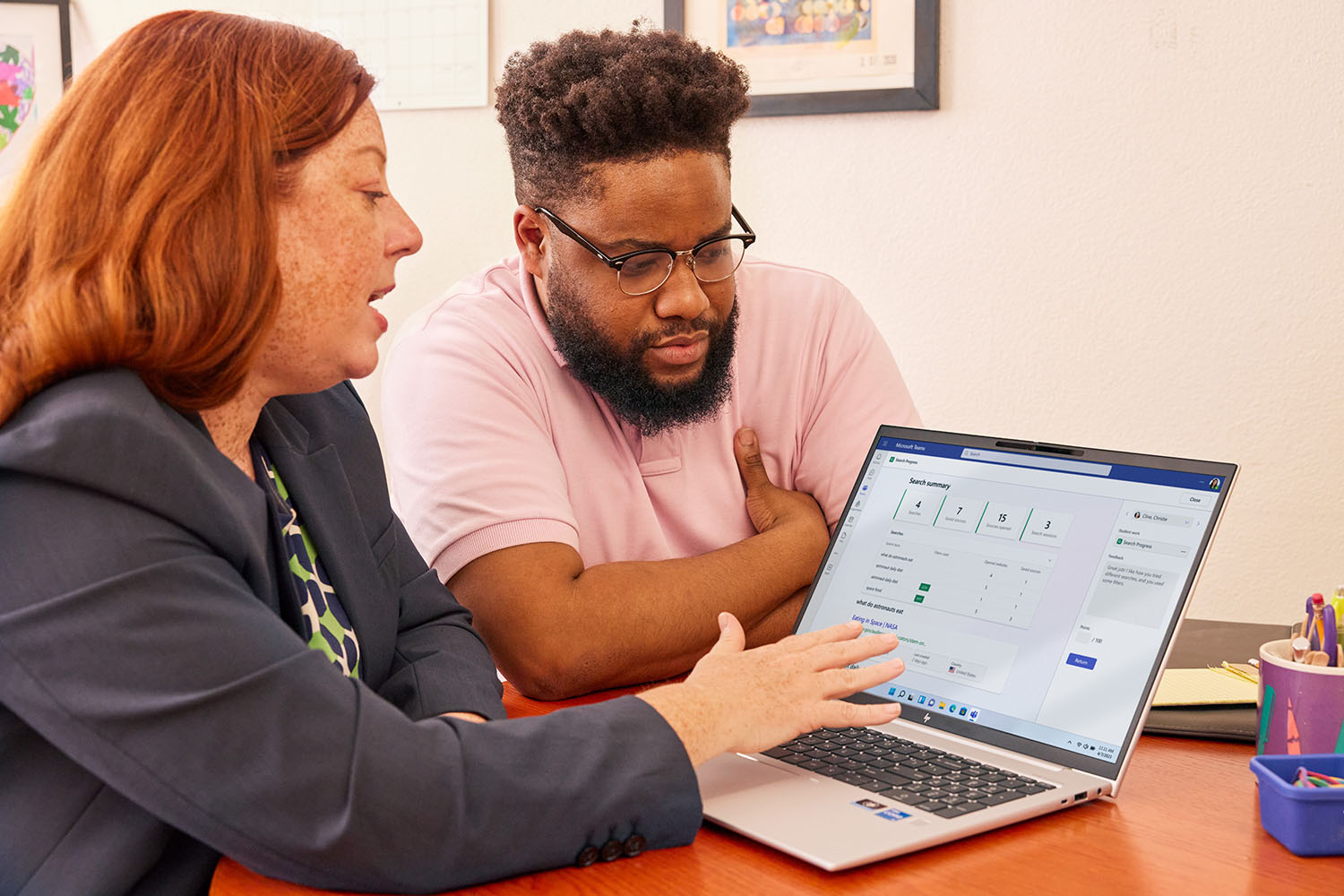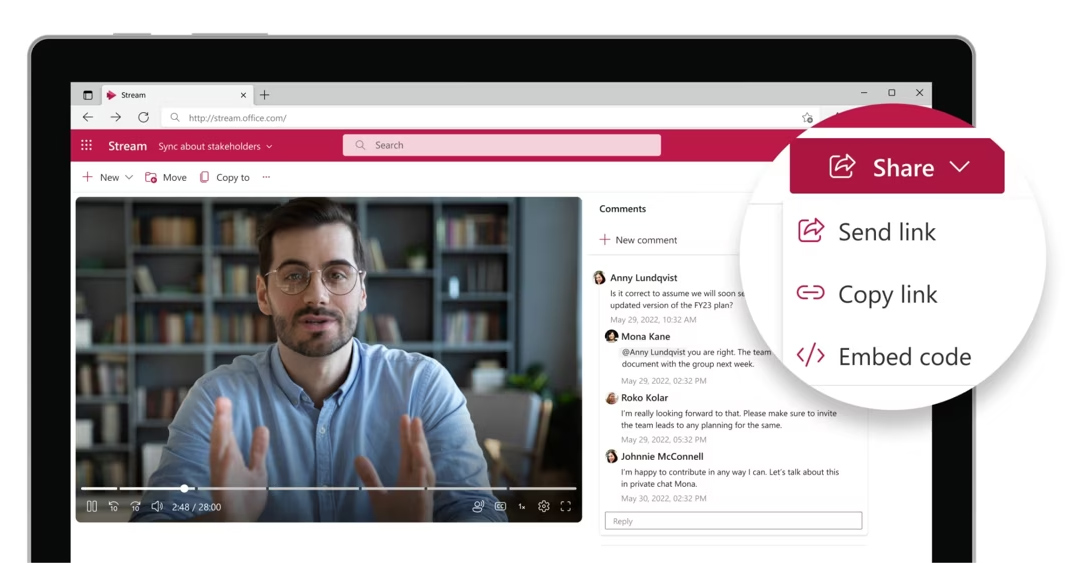How data and AI in education are changing the learning landscape
Digital systems around the world generate a staggering 2.5 quintillion bytes of new data every day.1 While this information is generally stored in large data silos where it can be easily accessed by users, industries have been harvesting their data for years to make themselves more efficient and effective.
Artificial Intelligence (AI) enables data holders to transform a passive resource into a powerful catalyst for accelerated growth. For instance, when the state of Nebraska realized that it was spending approximately 655,000 staff hours per year to collect data reports from every school in the territory—an effort that yielded surprisingly few benefits—the Nebraska Department of Education set out to build a Statewide Longitudinal Data System that would allow information to flow in near-real-time from hundreds of sources and deliver actionable insights to state, district, and school leaders; administrators; and educators.
Despite the noticeable positive impact, until recently, the education sector had been relatively slow to embrace digitalization and the use of data and AI to accelerate learning. However, COVID-19 created an urgent need for education systems to use their data to gain visibility into who was engaging in remote learning and where education was taking place. Education leaders the world over were motivated to take decisive action and schools began to make the transition to online learning as quickly as possible.
“Throughout the COVID-19 response we understood clearly the importance of having data in order to measure the impact of this unprecedented disruption to education,” observed Stefania Giannini, Assistant Director-General for Education at UNESCO.
Today, many institutions have settled into a blended or hybrid learning model and want to see what other benefits their digital framework can offer. Using cloud technology enables them to gain visibility and accelerate the impact of teaching and learning systems.
Microsoft Teams employs data analytics for faster results
Education Insights, a feature in Microsoft Teams for Education, is a great example of this. It uses data analytics to keep educators informed of students’ engagement, learning progress, and well-being. A wide range of built-in digital apps and tools allows teachers to interact with learners on the platform and gain an overview of how well they are progressing, both at the class and individual levels.
One such tool is Reading Progress, a literacy solution that enables students to record themselves while reading aloud. The program makes a note of all the words that are challenging to the reader and provides visual aids and additional reading exercises to help them improve. Best of all, Reading Progress saves teachers hours of time spent evaluating students one at a time. It also allows teachers to take a personalized approach to teaching by addressing each student’s needs individually.
“Given the power and centrality of literacy in conferring future outcomes, we are very proud of Reading Progress, and we are excited to continue to build on it and do even more,” said Steve Liffick, Vice President Modern Life and Learning.
Understanding how data and AI works
Among the key benefits of cloud technology are that it allows institutions to retain full ownership of their student data as well as receive expert support from partner technology companies on how to integrate security protocols and create governing policies around that data. Last year, UNESCO’s member states adopted the first-ever global agreement on the ethics of AI. The document outlines a framework for the ethical use of AI including a chapter that is specifically focused on the ethics of AI in education.
UNESCO has been at the forefront of the international response to the global education crisis since the beginning, launching the Global Education Coalition in early 2020. The platform brought together more than 175 members from the UN family, civil society, academia, and the private sector to protect the right to education during the pandemic and beyond. Members are united under the coalition’s three flagships: connectivity, teachers, and gender. “We’ve noticed that in many countries girls have been left behind,” said Stefania. “Filling the gender gap is something that UNESCO has been focusing on since the beginning of the pandemic.”
“In order to ensure that all children are able to receive the benefits of education analytics and AI, all children have to participate in digital learning” observes Paige Johnson, Vice President, Microsoft Education Marketing. “As long as some children are still operating in the analog world, you risk creating Big Data systems that leave those children out of the thinking and the work.”
Another aspect to consider is that in order to benefit from big data systems, all students must take part in digital learning—otherwise, education leaders run the risk of excluding certain learners from the data and the solutions such learning enables. This is why equipping every student with a digital device is the first step to implementing a successful data and AI strategy.
Helsinki was the first capital city to recognize the importance of having a digitalization strategy for education. In 2016, city officials set out to make Helsinki the most impactful place for learning in the world. Working with Microsoft, the city’s Education Division used Azure to build a powerful AI hub capable of enhancing teaching and learning across a wide range of pedagogical use cases. The team’s primary focus was to create a personalized learning experience for each of their students, all while improving learning outcomes and placing an emphasis on well-being.
Open Education Analytics brings data and AI to every system
Open Education Analytics is an open source program created by Microsoft to support every education system’s unique journey with data and AI. The program was launched as a response to the urgent need for visibility into what was happening with education systems at the onset of the pandemic, especially as those systems moved more and more to digital learning platforms. “We realized in that moment that we needed to accelerate our support for our customers’ data and AI journeys,” said Maria Langworthy, Principal Program Manager at Microsoft.
The four components that make up the Open Education Analytics program are a set of open-source technical resources, a comprehensive curriculum on data engineering and data science training, Microsoft’s principles for responsible AI, and a global community of education systems developing shared use cases.
Each pillar is designed to solve specific challenges to digitalization and to empower education systems to navigate their way forward. As Maria noted, “It’s not just data and a lot of dashboards. It’s about how you use this data to make better decisions, to better utilize your resources to really push learning progress.”
Leveraging data with EMIS
“Our goal with Microsoft Education Data and AI programs is to meet every education system where they are today and to help them move forward, [in order] to better leverage the data that they have using our modern data and AI services,” said Louise Macquet, EMIS Cloud Business Development Lead, Microsoft MEA.
The Education Management Information System (EMIS) is designed to enable education systems to effectively collect, store, manage and report their data.
It does this through an open-source common data model for education that provides systematic consistency for data and supports education systems to develop applications and integrators more quickly to operate across multiple systems more easily. "The common data model was developed by Microsoft and founding partners to eliminate data silos for a connected engaged platform producing efficient and real-time data," explained Louise.
In order to empower education leaders across the world to accelerate the digital transformation of their systems and achieve meaningful impact in education, Microsoft created the Leaders in Digital Transformation of Education program. Join the program today and sign up for the Data and AI Accelerator to harness the power of your student learning data in real time for optimal results.
1 https://techjury.net/blog/how-much-data-is-created-every-day/#gref




